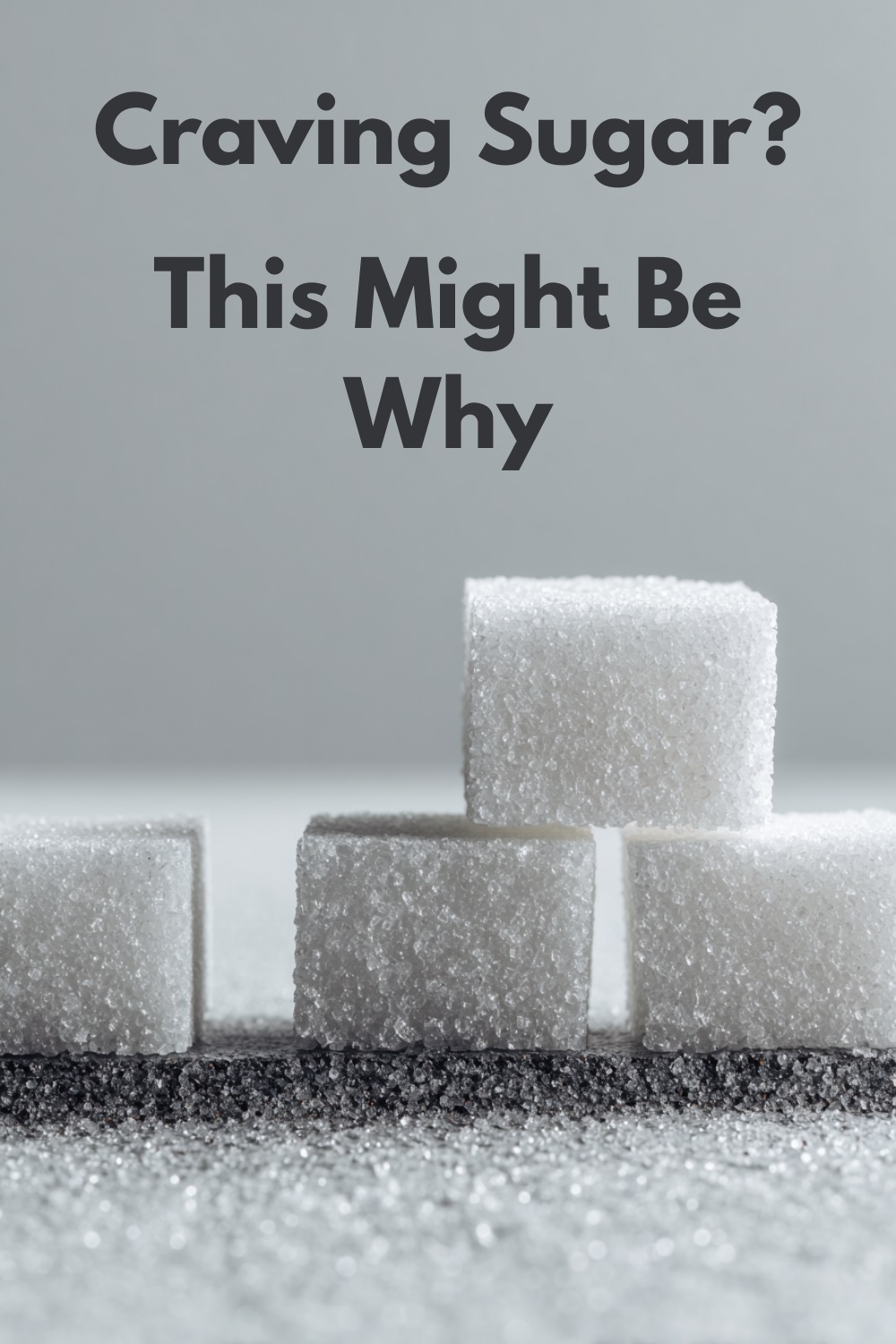Sugar cravings are frustrating.
You’re doing fine, then suddenly you’re standing in the kitchen reaching for something sweet. Sometimes it feels like it happens without you even thinking.
And most advice just tells you to “cut it out” or “have more willpower.”
But here’s the truth:
You don’t crave sugar because you’re weak or out of control.
There’s always a reason behind it.
If you understand the reason, you can respond to the craving in a way that actually helps instead of fighting it and feeling guilty later.
What’s Behind Sugar Cravings?
Let’s look at what’s really going on when you’re craving something sweet. It’s usually one of these:
1. Blood Sugar Crashes
If you go too long without eating, or you eat meals that are low in protein and fat, your blood sugar drops.
When that happens, your body sends out a strong message: get sugar now.
Sugar is fast energy. Your brain knows it will work quickly. That’s why the craving can feel so strong and urgent.
This is especially common if you:
- Skip breakfast or lunch
- Eat mostly carbs without anything to slow them down
- Go several hours without eating anything

2. Under-Eating Earlier in the Day
A lot of people eat very little during the day – then end up snacking like crazy at night.
It’s not a lack of willpower. It’s your body trying to catch up on missed fuel.
If you eat too little earlier on, especially if you’re busy or distracted, those cravings build up. By the time evening hits, your body just wants quick calories.
Sugar is the fastest, easiest option.
3. Habit and Routine
You might not even be hungry.
You’ve just trained your brain to expect sugar at certain times. Mid-afternoon slump? Dessert after dinner? Sugar becomes part of the routine.
It becomes automatic.
And because sugar gives a little dopamine hit, your brain keeps coming back for it.
4. Emotional or Mental Fatigue
This one’s big and often overlooked.
If you’re tired, stressed, anxious, bored, or mentally drained, sugar starts to feel like a quick way to cope.
You’re not eating for fuel. You’re eating for comfort or distraction.
And again, sugar works – for a moment. It soothes the feeling temporarily. But the problem isn’t really about food.
Why Just Resisting Sugar Doesn’t Work
A lot of people try to fix this by cutting sugar completely.
Cold turkey. Zero sweets in the house. No treats, no flexibility.
That might work for a short time. But eventually the cravings come back – usually stronger.
Because you didn’t fix the cause. You just tried to suppress the signal.
And when the craving does come back, it often leads to guilt, overeating, and feeling like you’ve failed.
You don’t need more discipline. You need a better understanding of what your body’s asking for.
Practical Things That Help
Here are a few grounded changes that make a real difference:
1. Eat Enough Protein and Fat
This one’s simple but powerful.
Protein and fat help keep your blood sugar stable. That means fewer crashes – and fewer urgent sugar cravings.
Try to build each meal around:
- A protein source (chicken, eggs, tofu, beans, Greek yogurt)
- A healthy fat (olive oil, nuts, seeds, avocado)
- Some fiber from carbs or veg
When your meals are balanced and satisfying, your cravings go down naturally.
2. Don’t Skip Meals or Eat Too Lightly
Skipping meals doesn’t save you from cravings – it causes them.
Try to eat every 3 to 5 hours. Pay attention to your hunger, especially earlier in the day.
This helps prevent that late-afternoon or late-night crash where you just want sugar and nothing else will do.
3. Build In Better Sweet Options
You don’t need to quit sugar completely.
But it helps to have some middle-ground options you actually enjoy. Not “diet” food, just something that gives you a sweet hit without swinging your energy all over the place.
Try:
- Fruit with nut butter
- Greek yogurt with honey and berries
- Dark chocolate
- Protein smoothie with banana and cocoa
- Cinnamon on oatmeal or toast
These can satisfy the craving without kicking off a binge.
4. Notice Your Triggers
Start to observe when you crave sugar the most.
Is it after a long meeting? When the kids are finally in bed? During a slump at 3 PM?
Ask yourself: What do I really need right now?
Sometimes it’s food. Sometimes it’s rest. Sometimes it’s a break, a moment of quiet, or something to help you decompress.
The more you understand the pattern, the more you can interrupt it in a helpful way.
5. You Don’t Need to Eliminate Cravings – Just Change Your Relationship With Them
This is the most important idea:
The goal isn’t to never crave sugar again. The goal is to feel calm and steady around it.
Trying to wipe out cravings completely sets you up for a fight you can’t win.
Cravings are part of being human. They will come and go.
But when you understand where they come from and how to respond, they don’t run the show anymore.
You can enjoy something sweet without spiraling. You can notice a craving and decide how to handle it – instead of being driven by it.
That’s the real progress.
Final Thoughts
Sugar cravings aren’t the enemy. They’re just a message from your body or brain saying, “Hey, I need something.”
The more you listen, the more you can respond without guilt or drama.
You don’t need to be sugar-free to be healthy.
You just need to be aware, well-fed, and kind to yourself.
Start with one shift. Eat more earlier in the day. Add protein to your meals. Notice your triggers.
And remember: you’re not failing because you crave sugar. You’re just ready for something different.

